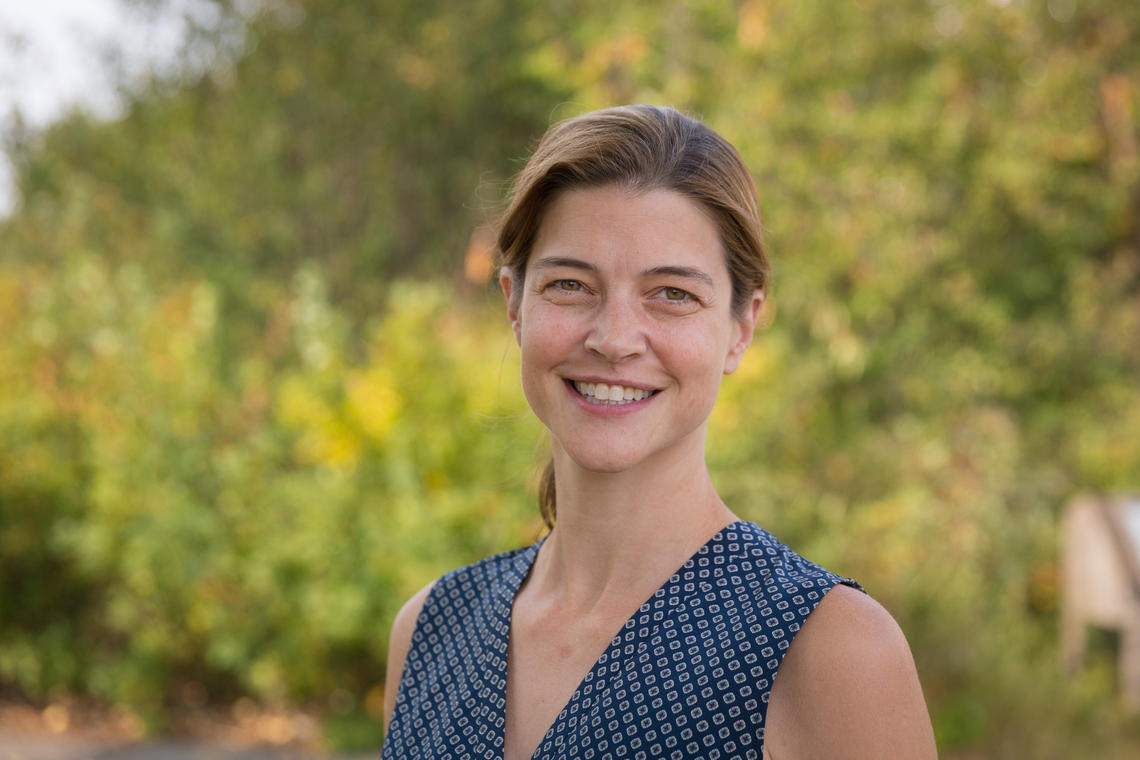Oct. 27, 2021
This Hour Has 22 Minutes star, research participants, round out cast of moving breast cancer film

What started off as an academic research project aimed at better understanding the lived experience of breast cancer patients is now a charged and emotional film starring Canadian icon Mary Walsh and Rookie Blue’s Mayko Nguyen.
The Cut of It is a dramatized collection of real-life struggles, fears and trauma experienced by women with breast cancer, experiences originally captured through a digital story project, later turned into a stage play, and now brought to life as a motion picture.
- Photo above: Iconic Canadian actress Mary Walsh, left, stars in The Cut of It, a new motion picture based on research conducted by Dr. Kathleen Sitter, PhD. The film adapts the digital stories of breast cancer patients, in which they describe their heart-wrenching ordeal with the disease.
“Most of us are touched directly by breast cancer, whether it’s one’s own individual experience, or the experience of a family member or a friend. So, these stories ring true to a lot of people,” says Dr. Kathleen Sitter, PhD, whose scientific work provided the stories for the film, and who has supported the production, first of the play, and now the movie.

Research by Kathleen Sitter with the Faculty of Social Work, and a member of the O’Brien Institute for Public Health, is the foundation of the new motion picture The Cut of It, which explores the experience of breast cancer patients.
“This is a very moving film. The acting is phenomenal, the characters are relatable, and the stories come to life,” says Sitter, an associate professor at the University of Calgary’s Faculty of Social Work and a member of the O’Brien Institute for Public Health.
“For me, it resonated on a number of levels. To think that these stories are being shared in such a thoughtful and moving way.”
The movie — which was produced by Ruth Lawrence and White Rooster Theatre, directed by Ruth Lawrence, filmed in Newfoundland and written by playwright and actress Meghan Greely — stars Canadian icon Mary Walsh, best known as the star and creator of This Hour Has 22 Minutes, and Vancouver-born Mayko Nguyen, best known for roles in ReGenesis, Rookie Blue and Killjoys.
They were all drawn to the project by a sense of community — Greely and Walsh are Newfoundlanders, as is the theatre company and the women whose stories the film portrays — as well as the allure of bringing to the screen all-too-common real-life stories of women facing off against their fears, the medical system and their own mortality, says Sitter.
The cast even includes several of the original research participants, women fighting cancer who lent their voices and stories to Sitter’s original digital stories research project.
For Sitter and her team of researchers, these digital stories also shine a light on the experiences of patients, their circumstances and the outcomes of care. They also put the patient voice front and centre in a conversation about how we see cancer and view patients living with it. By doing so, the stories have the potential to inform medical practitioners, decision-makers and support networks on the reality that these women are living through.
“It was the most vulnerable, inspiring, invaluable source material… I was able to hear these women relay their own experiences in their own words, in their own voices,” says Greely, adding that these stories seared themselves into her mind, and although they are heartbreaking, they also find contrast in levity and warmth.
“The digital stories were filled with pain, but also triumph and community and love and even humour. I wanted the experience to feel cathartic in some way. Levity seemed to be a coping mechanism for some of these women, so I hoped to represent that.”
The Cut of It as a film is the evolution of the play by the same name, whose sold-out run on the East Coast was cut short by the COVID-19 pandemic. The play, according to Sitter, has proven to be an extremely powerful knowledge translation tool, and she hopes the film will do the same.
According to Sitter and Greely, the film aims to achieve the mission the play originally set out to accomplish: to put forth a dramatized production that spoke to cancer patients and survivors, that educated the public, that informed decision-makers on the shortcomings and blindsides in the medical system, and that helped guide the actions and behaviour of medical professionals.
The film, which was released online this week, and the script for the play, which will be available later this year, are both free for the public to use, whether it is as an educational tool or a fundraiser, says Sitter.
“Our hope for the show was always that it would reach wider audiences, that it would be performed again and again by different companies, by groups wanting to spread awareness about breast cancer and the experience of navigating patient care,” adds Greely. “I wanted the script to be a tool for those who needed it, accessible to those who've been diagnosed with breast cancer, those trying to support friends or family members facing diagnosis, surgery, treatment decisions, life in remission.”
In the end, the film places patient stories front and centre, says Sitter.
“I am hopeful the film will touch people in some way, and that at they carry these stories with them.
“The delivery of heath care has a profound impact on patients. For some, even after they’ve completed treatment, it has a lasting impact. I’m hoping people will see and hear in this form of patient storytelling, that they do, in fact, carry these stories with them forever.”
The film is now live and available here.











